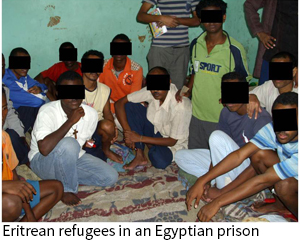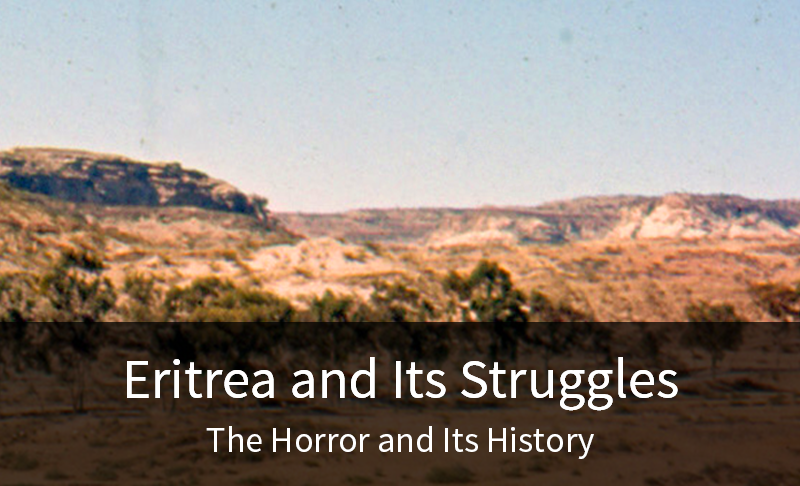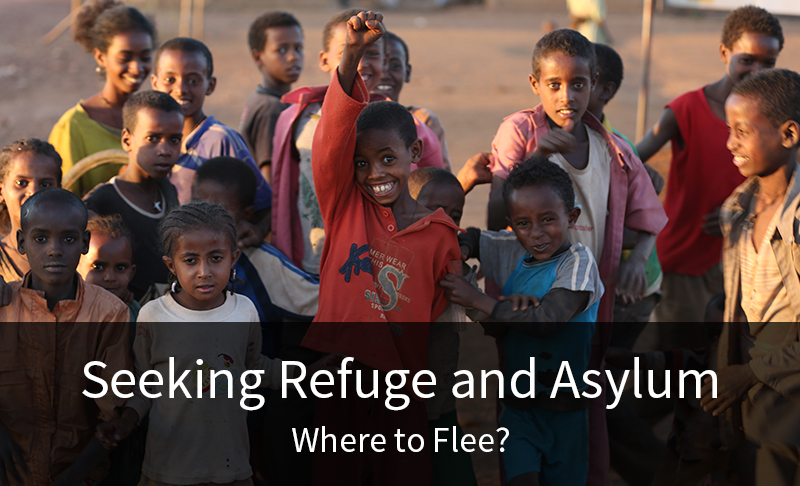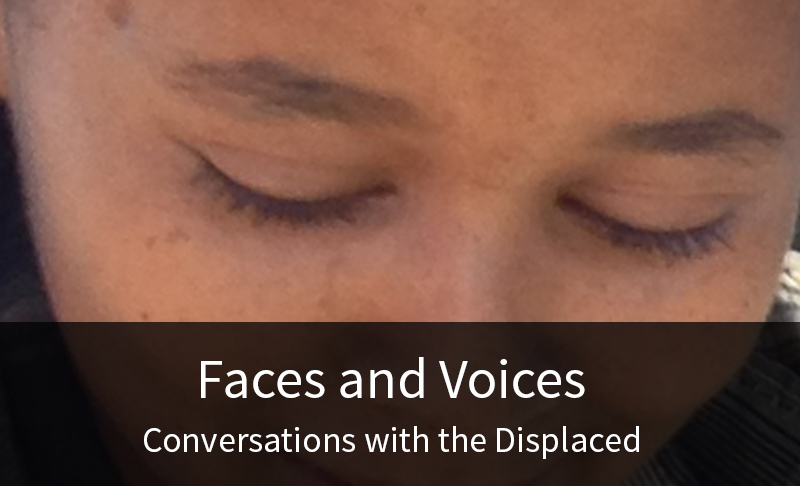Surviving in Egypt
Seeking Refuge and Asylum
Surviving in Egypt
 Eritreans have come to reside in Egypt in recent years through various circumstances: trying (and failing) to be smuggled into Israel; trying (and failing) to be smuggled across the Mediterranean to Europe; seeking temporary refuge pending resettlement elsewhere; and simply seeking continuing safe haven in Egypt. Since 2023, many have arrived from Sudan, fleeing the civil war there. Among those who had sought refuge in Israel, some are survivors of torture at the hands of the extortionists in Sinai.
Eritreans have come to reside in Egypt in recent years through various circumstances: trying (and failing) to be smuggled into Israel; trying (and failing) to be smuggled across the Mediterranean to Europe; seeking temporary refuge pending resettlement elsewhere; and simply seeking continuing safe haven in Egypt. Since 2023, many have arrived from Sudan, fleeing the civil war there. Among those who had sought refuge in Israel, some are survivors of torture at the hands of the extortionists in Sinai.
At the peak of Europe’s “migration crisis,” the category of those Eritreans in Egypt who were bound for Europe had become particularly visible. Starting in mid-2015, the notorious abuses of migrants and refugees by smugglers, militias and others in Libya caused greater numbers than before to seek to cross the Mediterranean to Europe from Egypt rather than from Libya, even though the crossing from Egypt was longer and more perilous. But in late 2016 the Egyptian government began intercepting and detaining smugglers, traffickers, migrants and refugees who attempted that crossing. European governments have assisted in those efforts. The Egyptian government has also detained Eritreans seeking to cross overland into Libya. As a consequence of all of that, many Eritreans who had already come to Egypt with a view to migrating onward to Europe became trapped there.
Obtaining or maintaining refugee or asylum status in Egypt has been difficult, and it reportedly has become more difficult in recent years. Those fleeing the war in Sudan are particularly caught in a processing crunch of refugee applications submitted by newly arriving Sudanese and others. As a consequence of not having legal status, many Eritreans have been detained in harsh conditions within Egyptian detention centers, police jails and prisons; and those without status stand to be deported to Eritrea. The fortunes of those not detained appear to be better than those of Eritreans in Sudan and Libya; a community of wealthier and more long-term Eritreans living in Cairo appears to be more secure; and some avenues for participation in the formal and informal Egyptian economies appear to exist. Nevertheless, Eritreans have reportedly at times suffered regular verbal harassment, physical violence and labor exploitation, in addition to the risk of detention and deportation.
Through at least March 2025, Egypt was indeed deporting Eritreans to Eritrea. (Although Eritrea refuses to accept deportees from most countries other than Ethiopia, its acceptance of those from Egypt might be linked to a recent strengthening of Egypt’s alliance with Eritrea and Somalia, as described here. Also, notably, in the summer and autumn of 2024, Turkey deported several hundred Eritreans to Eritrea, at a time when Turkey too appeared to be aligned geopolitically with Eritrea, Egypt and Somalia.) Deportation to Eritrea could spell torture or death there. But through the heroic efforts of a few humanitarians, thousands — including Sinai survivors — have been moved from detention in Egypt to Ethiopia.
The operations of foreign and domestic human rights NGOs are severely restricted in Egypt; and journalists as well as human rights activists are frequently imprisoned or killed. Thus monitoring, intervention and commentary with respect to the Eritrean refugees there is challenging. During the current period of authoritarian governance and of acute internal discord regarding fundamental issues of democracy, pluralism, security and economic well-being, no widespread popular or governmental movement to protect the rights or security of sub-Saharan refugees and asylum seekers in Egypt is apparent.
In the years when Eritreans were seeking to cross the border from Sinai to Israel, Egyptian border police would often seek to stop groups by shooting into them, wounding or killing some, and then jailing the survivors in Sinai.



